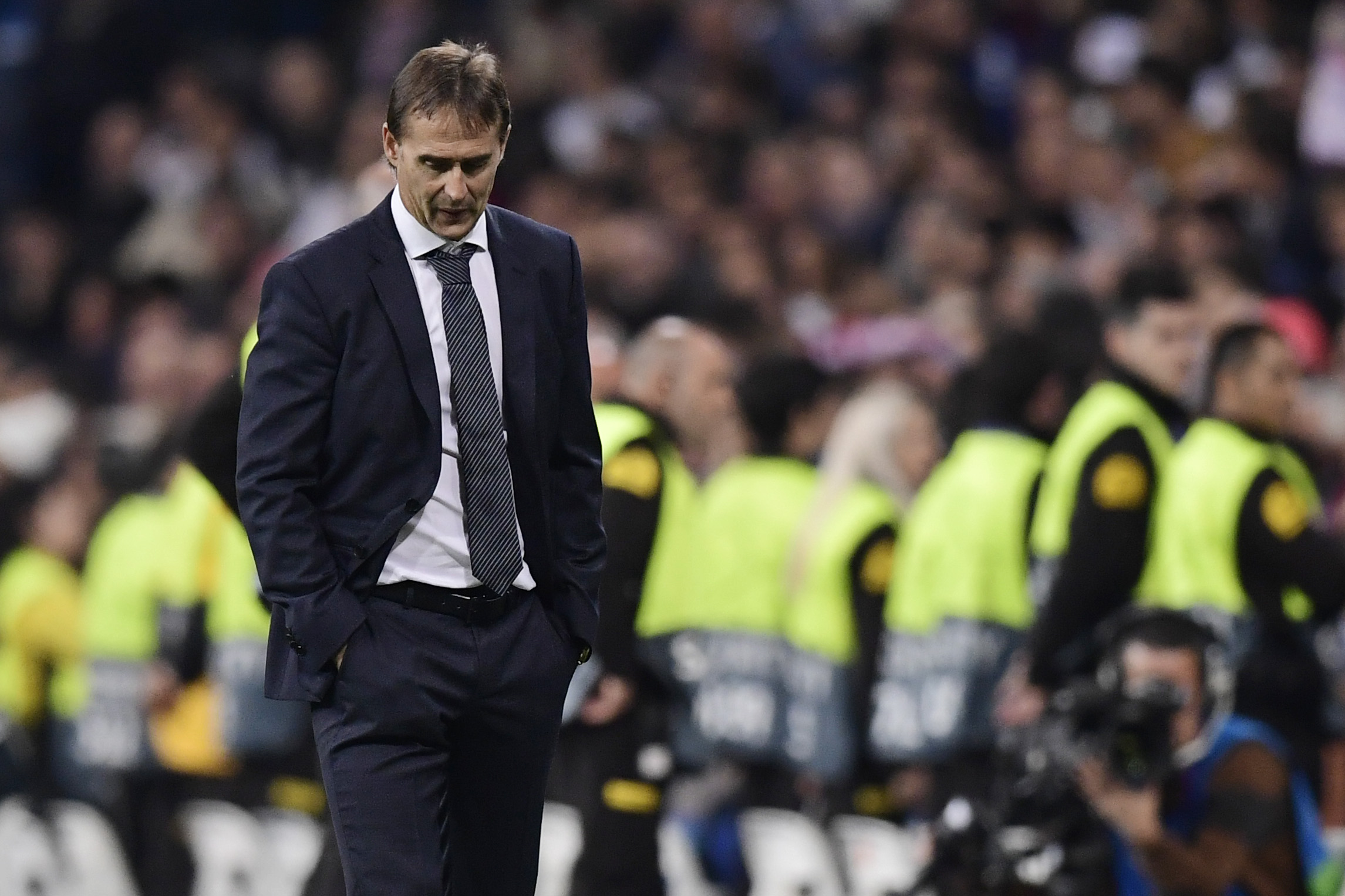Image Credit [Javier Soriano/AFP]
“We have a great team and we are trying to carve out our own path, trying to evolve and grow the style of play we already had. What happened then happened, but we need to focus on what we can do in Russia without looking eight years back.” It will be somewhat impossible for Julen Lopetegui to avoid looking back now. Those words – spoken just five months ago as the unburdened and relaxed orchestrator of an excitingly youthful ‘Tiki-Taka 2.0’ Spanish side – must surely now echo through memories of the unforgiving events that followed them.
Of course, Fiorentino Perez is rarely forgiving, and just five months after representing a beacon of progression in Spanish football, Lopetegui finds himself amongst the distinguished company that occupies Real Madrid’s management graveyard. But in truth, the trauma that birthed his appointment to the role probably destroyed it as well.
After 10 games, Real Madrid sit in 9th with just 14 points. Even before Barcelona humiliated them on Saturday, it was their worst start to a season in 17 years. In the apocalyptic rubble of that game, Lopetegui said he still had the ‘strength’ to carry on. Not the words of a confident leader, but of a defeated man whose ordeal has not relented since June 13th.
Whether or not Cristiano Ronaldo was used sparingly by Zidane until the latter stages of last season, Lopetegui still took control of a side that had lost a player that contributed 44 goals in all competitions. A good (perhaps very good) working relationship with Isco for the national team has not proven enough to plug such a considerable hole.
On top of this, Gareth Bale’s contribution of just three goals in the league and Karim Benzema having provided just one assist in 732 minutes of football since the Champions League final have both compounded the stodginess of Madrid’s attacking play. Before their consolation goal in the El Clásico drubbing, Real had failed to score in over eight hours of league football.
It would be churlish to speculate whether these poor individual performances can be placed at Lopetegui’s door. The exit of Cristiano Ronaldo was always going to be nothing short of tumultuous at the Bernabéu, and Perez badly needed serenity if his club were to make the transition seamlessly. What followed was anything but, and one gets the impression that Lopetegui and Real never recovered from the shock of such a stormy management transition. Combine that with the loss of a player who has – sometimes single-handedly – won everything over a nine year period, and it seems this outcome was miserably inevitable.
For Julen Lopetegui, there will be inevitable regret, but he can take solace from the knowledge that failing at Madrid rarely means the end of a career. But for now, he and the club he departs must exorcise the past months and begin to rebuild.
James Carroll

